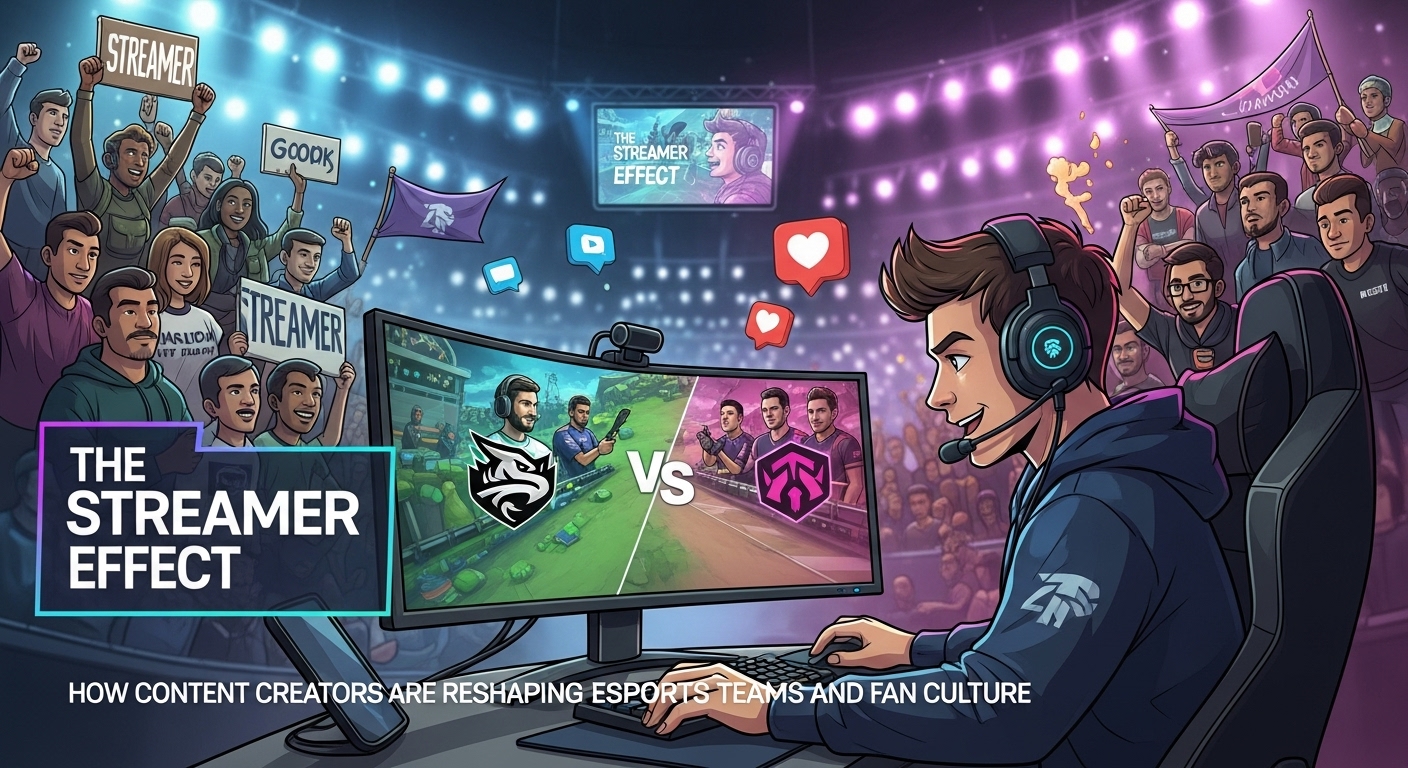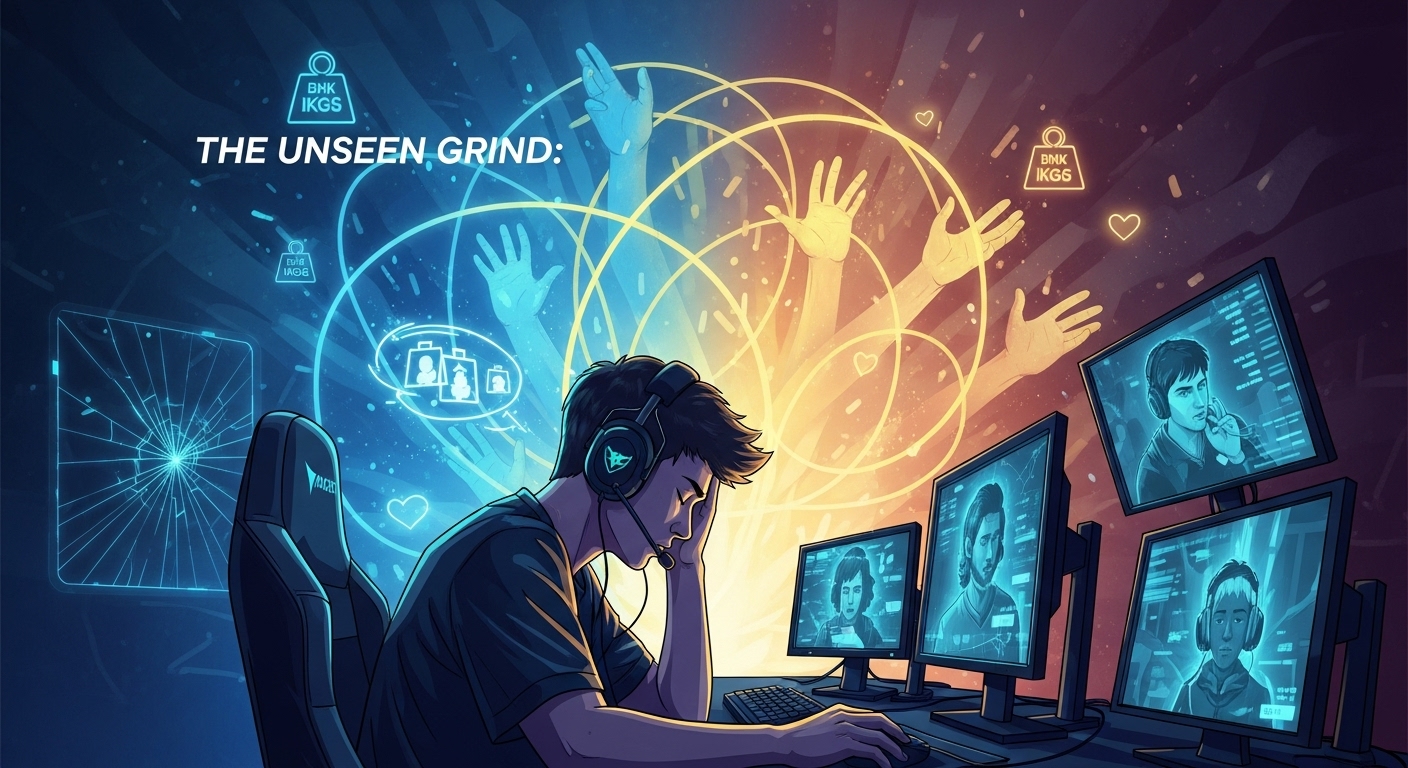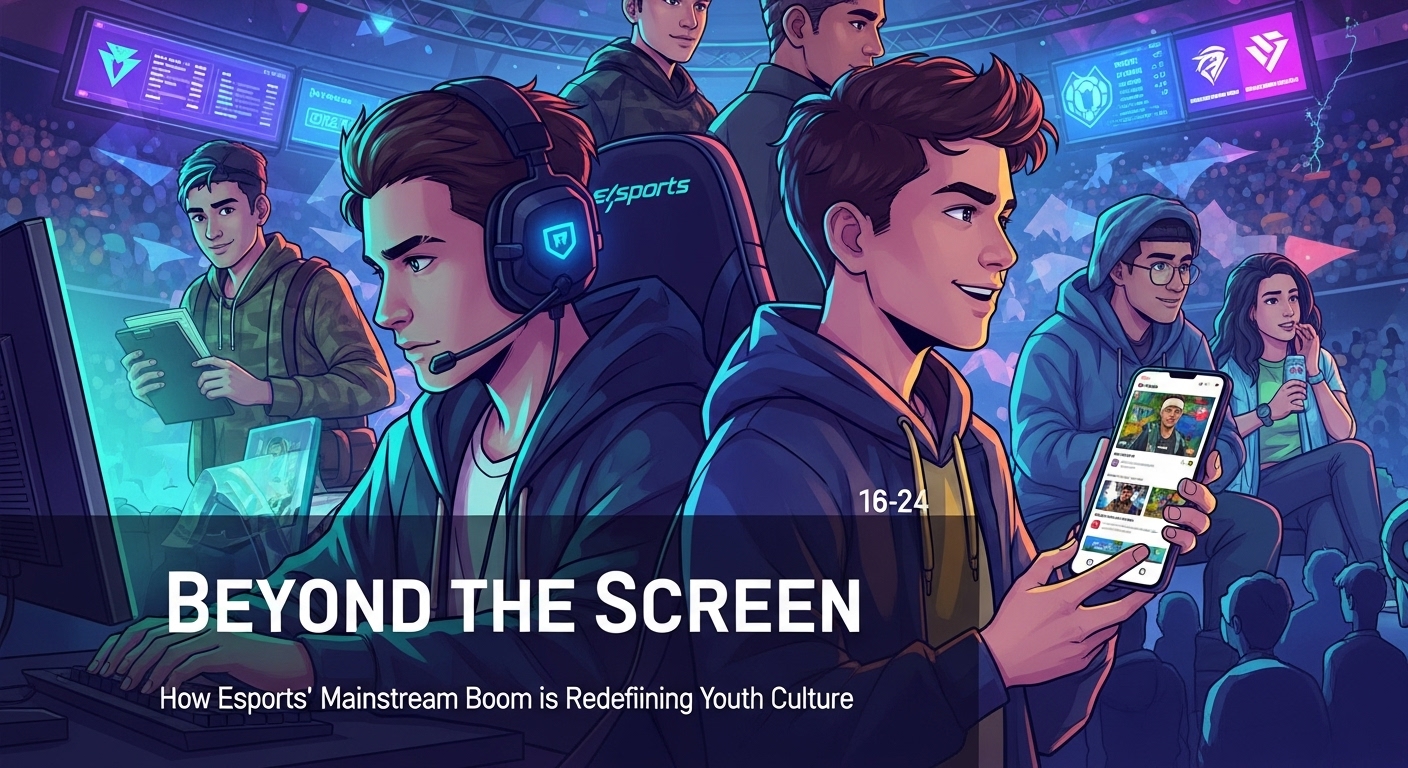The Dawn of a New Era in Esports
For decades, the path to professional esports felt rigid and predictable. Talented players would grind their way through amateur leagues, hoping to be scouted by a large, often corporate-backed organization. These teams, like TSM, Cloud9, or Fnatic, were the titans of the industry, built on a foundation of sponsorships, venture capital, and championship aspirations. But in recent years, a seismic shift has occurred, a disruption powered not by corporate boardrooms, but by bedrooms, streaming setups, and the charismatic personalities who inhabit them. This is the ‘Streamer Effect,’ a phenomenon where influential content creators are stepping into the roles of team owners, managers, and visionaries, fundamentally reshaping esports teams and the very fabric of fan culture.
What happens when the person who entertains you daily on Twitch or YouTube decides to build a competitive team from the ground up? You get a new breed of organization—one built on personality, community, and authenticity. This movement is more than just a novelty; it’s a powerful evolution in the e-sports & culture landscape, challenging the old guard and creating new pathways for players and fans alike.
From Solo Streamer to Team Owner: The Creator-Led Revolution
The transition from entertainer to entrepreneur isn’t new, but its application in esports has been explosive. Streamers, armed with massive, dedicated audiences and a deep understanding of the gaming community, are uniquely positioned to build teams that resonate with fans on a personal level.
The New Titans of Esports
Look no further than Jeremy ‘Disguised Toast’ Wang and his organization, DSG. Initially a fun ‘for content’ experiment in Valorant, DSG quickly became a beloved underdog story, capturing the hearts of millions. Toast leveraged his platform to provide transparent, behind-the-scenes access to the team’s journey, from tryouts to triumphs and tribulations. Fans weren’t just watching a team; they were part of a narrative they had a personal stake in. Similarly, Charles ‘MoistCr1TiKaL’ White Jr. founded Moist Esports, a team that mirrors his own irreverent and genuine brand. By signing talented rosters in games like Rocket League and Super Smash Bros., he has built a competitive powerhouse that still feels like an extension of his own content, complete with passionate, meme-filled support from his community.
Authenticity as the Ultimate Brand
What makes these creator-led teams so compelling? The answer is authenticity. Traditional esports organizations often struggle to create a genuine connection with their audience. Their branding can feel corporate and distant. In contrast, a streamer-led team’s brand is intrinsically linked to the creator’s personality. Fans of Disguised Toast already know his strategic mind and quirky humor; fans of MoistCr1TiKaL appreciate his candid, no-nonsense approach. This pre-existing relationship creates an immediate and powerful bond between the fans and the team. The team’s victories feel like a victory for the community, and their losses are shared disappointments. This emotional investment is something legacy organizations spend millions of dollars trying to manufacture, but for streamer-led teams, it’s the default setting.
Altering the Player-Team Dynamic
The Streamer Effect extends beyond branding and fan engagement; it’s also changing what it means to be a professional player. Creators who have experienced the grind themselves often bring a more empathetic and modern approach to team management.
More Than Just a Paycheck
Players on streamer-led teams are often treated as partners in content as much as they are competitors. The pressure to win is still there, but it’s frequently balanced with an emphasis on personal brand building, mental health, and a positive team environment. Streamer-owners understand the importance of a player’s individual stream and social media presence, often encouraging and promoting it. This creates a symbiotic relationship where the player’s personal brand grows alongside the team’s, making the organization a more attractive destination for talent. It’s a holistic approach that recognizes players as multifaceted individuals, not just in-game assets.
The Power of the Co-Stream
One of the most significant innovations spurred by the Streamer Effect is the rise of the official co-stream. Instead of being limited to a single, official broadcast with traditional commentators, fans can now watch official matches on their favorite creator’s channel. This provides a viewing experience infused with personality, humor, and unfiltered reactions. When a streamer-owner co-streams their own team’s match, the broadcast becomes an emotional rollercoaster that fans can ride along with. This not only boosts viewership for the entire league but also deepens the connection between the team and its community, offering a unique value proposition that traditional broadcasts simply cannot match.
Redefining Fan Culture and Community
Perhaps the most profound impact of the Streamer Effect is on the fans themselves. The wall between the audience and the organization has been torn down, replaced by a vibrant, interactive, and deeply personal community experience.
A Direct Line to the Action
With a streamer at the helm, fans get unprecedented access. They hear the owner’s thoughts on roster changes directly on stream, see behind-the-scenes vlogs of bootcamps, and participate in community events hosted by the creator. This transparency builds trust and loyalty. The e-sports & culture dialogue shifts from speculative forum posts to direct conversations with the people in charge. This level of engagement makes fans feel less like consumers and more like integral members of the team’s journey, fostering a sense of belonging that is incredibly powerful.
Monetization with a Personal Touch
This deep community connection also revolutionizes monetization. Merchandise drops for streamer-led teams often sell out in minutes because they are infused with inside jokes and community memes. The designs feel less like generic team apparel and more like a badge of honor for being part of the in-group. Fans aren’t just buying a jersey; they’re buying a piece of the culture they actively participate in creating.
Challenges on the Digital Frontier
Despite its meteoric rise, the creator-led model is not without its hurdles. The very things that make it successful can also be sources of significant strain.
The Weight of Responsibility
Running a professional esports team is a complex and expensive endeavor. Streamers suddenly find themselves responsible for player salaries, housing, travel logistics, and the immense pressure of competitive performance. This can lead to burnout, as the creator must balance their primary job of content creation with the demanding role of a team owner. The financial sustainability of these teams, often funded directly by the streamer’s own success, is a constant question mark.
Performance vs. Popularity
A critical debate within the e-sports & culture sphere is the balance between creating content and winning championships. Are these teams prioritizing popular players over the most skilled ones? Does a focus on ‘the storyline’ detract from the ruthless pursuit of victory? While many streamer-led teams have achieved impressive competitive results, they continually face skepticism from those who believe the traditional, performance-first model is the only path to true legitimacy.
The Future is Live: A Permanent Shift in Esports
The Streamer Effect is far more than a passing trend. It represents a fundamental democratization of esports ownership and a paradigm shift in how teams are built, marketed, and loved. Content creators have proven that a powerful community and an authentic brand can be just as valuable as a massive corporate budget. They have injected a new level of personality, transparency, and excitement into the scene, forcing legacy organizations to rethink their own strategies for fan engagement. While challenges remain, the influence of these creator-led teams is undeniable. They are crafting the future of e-sports & culture in real-time, live for the world to see. What are your thoughts on this new era? Let us know your favorite creator-led team in the comments below!


